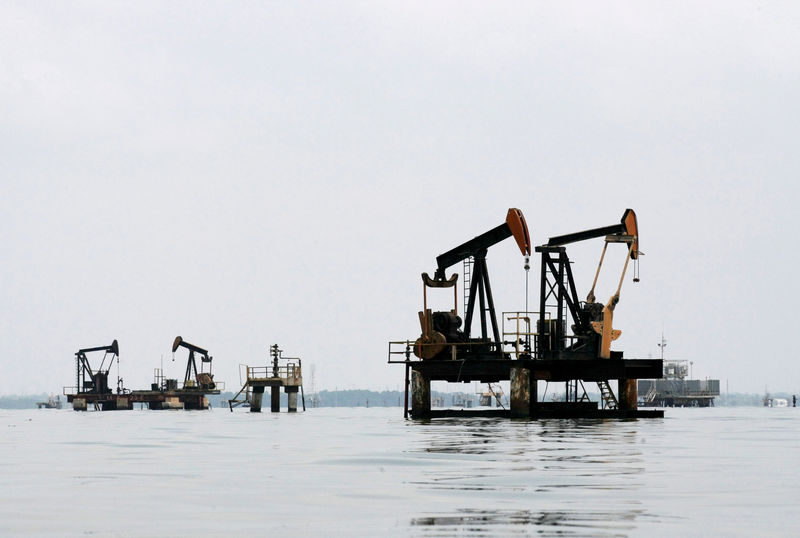By Karin Strohecker, Amanda Cooper and Ritvik Carvalho
LONDON (Reuters) - A rise in oil prices to four-year highs is heaping pressure on big emerging-market crude consumers such as Turkey, India, Indonesia and South Africa that are already grappling with current account deficits, weak currencies and rising inflation.
Emerging markets worldwide have been buffeted in recent months by the strong dollar, climbing U.S. interest rates and slowing growth momentum with Turkey and Argentina descending into full-blown currency crises.
Meanwhile Brent crude prices have risen above $80 per barrel, thanks largely to coordinated production cuts by some of the world’s biggest oil exporters, as well as impending U.S. sanctions on crude exporter Iran that could wipe yet more supply off the market.
Some analysts now think benchmark prices could return to $100 per barrel for the first time since 2014. But for a number of importers such as India, Turkey or Indonesia - who all have seen their currencies tumble to record lows this year - oil is already more expensive now at $85 a barrel than it was back in 2008 when the price hit a record $147 a barrel.
(The rising cost of oil to emerging market buyers: https://reut.rs/2OeE9Hb)
Rising oil prices spell trouble for emerging markets, said Jim McDonald, chief investment strategist Northern Trust, an asset management firm with $1.1 trillion under management.
"Look at the largest market cap countries ... every one of them is an oil importer," said McDonald. "High oil prices are bad for them, unless it is tied to growth being really good - today what is driving oil prices higher is not a pick-up in growth, it is a slowdown in supply, and that's a bad scenario."
Trouble is especially on the cards for those economies hit by the triple-whammy of a sharp currency drop, heavy reliance on dollar-denominated energy imports and external funding flows.
(Heat is on for emerging market oil importers png: https://tmsnrt.rs/2xBIav1)
While China, India, Thailand, Turkey, South Africa and Indonesia top the list of biggest emerging market oil importers, Thailand enjoys a solid current account surplus and China only edged into a rare deficit in the first half of the year.
However, Turkey, Argentina, India and Indonesia find themselves high up on the list of countries featuring large current account deficits as a percentage of their GDP, according to forecasts by the International Monetary Fund for 2018.
For many countries, the pressure is two-fold: rising crude imports with rising prices. China, India, Indonesia, Thailand, Turkey and South Africa imported 18 percent more crude oil in July 2018, the last month for which complete data is available, than they did in January 2017.
The average cost of their oil imports in their respective currencies, however, has risen by an average of nearly 60 percent in that time.
Analysts are also closely watching how another oil shock might affect country's import cover and the adequacy of central banks' foreign currency reserves. As oil prices rise, that ratio will come under even more scrutiny.
Consumer spending power across many of these countries is also bound to suffer as - unlike in 2008 - many consumers do not have the same cushion of fuel subsidies and central banks have to ramp up rates to tackle inflation pressures and steady their currencies.
(Import ratios png: https://tmsnrt.rs/2N1Uiu8)
Meanwhile, the hit taken by emerging market economies is likely to be severe enough to slow down oil demand growth this year and next.

All three major oil market forecasters - the International Energy Agency, the U.S. Energy Information Administration and OPEC - cut their estimates for oil demand growth this year and next in the past days. All three cited the financial pain visited upon emerging markets as the key catalyst.